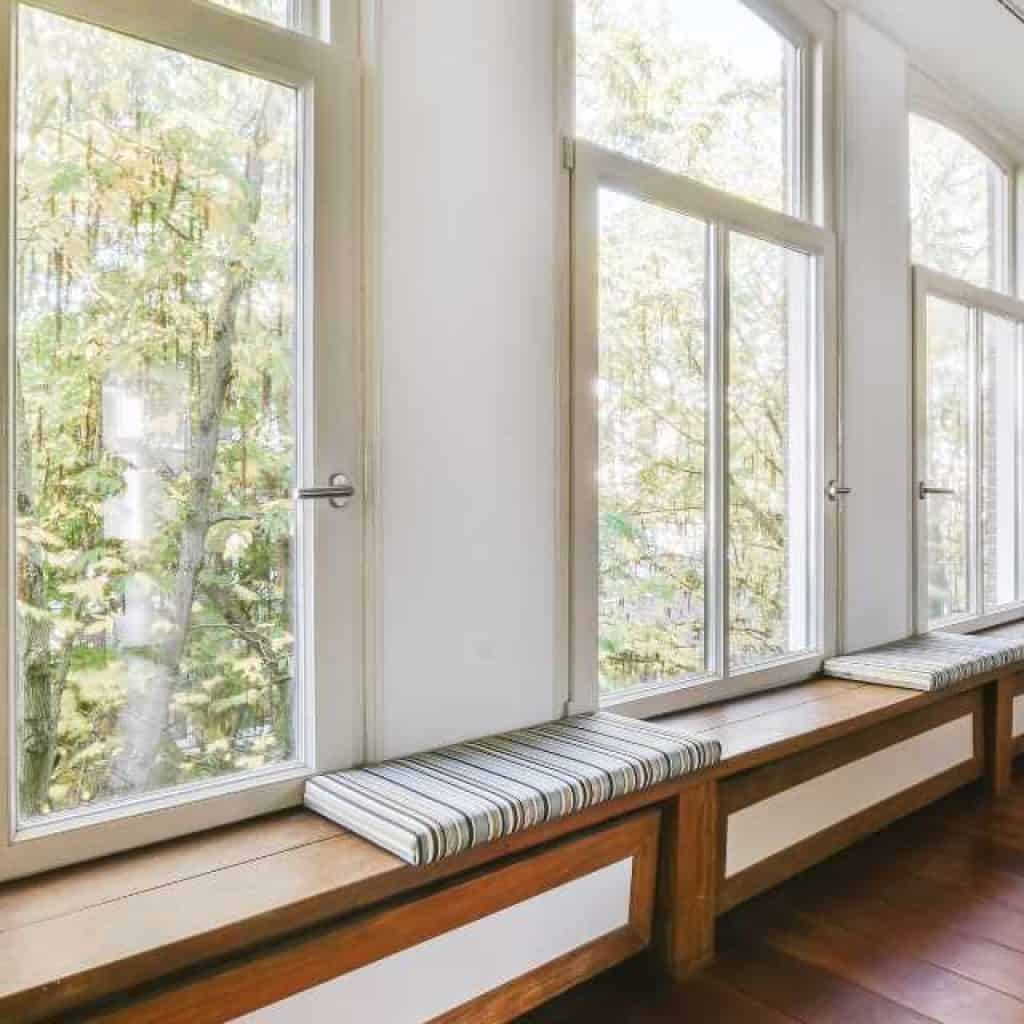House Window Tint | Unlock the Benefits of Home Window Tinting Today!
Home window tinting is a simple and cost-effective way to improve your home’s comfort and energy efficiency. With various types of tinting films available, it’s easy to find one that meets your needs and budget. This blog will discuss everything you need to know about home window tinting, like its benefits, types, and how to go about it.
What is Home Window Tinting?
-
Home window tinting applies a thin film to the interior or exterior of residential windows. This film is designed to block out some sun rays, primarily ultraviolet (UV) and infrared (IR). Window tinting can be done for aesthetic or practical reasons, such as reducing energy costs, increasing privacy, and protecting furniture and flooring from fading.
The film used in home window tinting is typically made of polyester or a combination of polyester and metal. The thickness of the film can range from 2 to 7 mils (a mil is one-thousandth of an inch), depending on the level of tinting desired. The film is available in various colors, from clear to dark, and can also be reflective.
Home window tinting can be done on any type of residential window, including single-pane, double-pane, and tempered glass. The process involves cleaning the window surface and applying the film using water and soap. The film is then squeegeed to remove any air bubbles and excess water. The film is allowed to dry and adhere to the window surface.
Types of Home Window Tinting
Several types of home window tinting are available, each with unique features and benefits. Here are some of the most common types:
- Dyed Window Tinting: Dyed window tinting is made by adding a layer of dye to a layer of adhesive, which is then applied to the window. This type of tinting is the most basic and affordable option available, but it also has the shortest lifespan compared to other types. It is effective in reducing glare and heat but not as effective in blocking UV rays.
- Metalized Window Tinting: Metalized window tinting is made by adding a layer of metal to a layer of adhesive, which is then applied to the window. The metal in the film reflects the sun’s rays, reducing the heat that enters the room. Metalized tinting is more durable than dyed tinting but can interfere with radio signals and electronic devices.
- Hybrid Window Tinting: Hybrid window tinting combines dyed and metalized tints. This type of tinting offers a compromise between the benefits of both types. Hybrid tints are durable, reflect heat, and reduce glare while still allowing some light to enter the room.
- Ceramic Window Tinting: Ceramic window tinting is the most advanced type. It is made by layering ceramic particles onto a layer of adhesive, which is then applied to the window. Ceramic tinting effectively blocks UV rays and heat while allowing light to pass through. It is also the most expensive option, but its durability and longevity make it a worthwhile investment.
- Security Window Tinting: Security window tinting is designed to make windows more resistant to shattering. This type of tinting is made by layering multiple sheets of polyester film, creating a strong and durable barrier. Security tinting is not only effective in preventing break-ins but also reduces the risk of injury from shattered glass.

Benefits of window tinting
There are several benefits of window tinting for both residential and commercial buildings. Here are some of the most common benefits:
- Reduces Heat: One of the primary benefits of window tinting is that it reduces the heat entering a building. The film blocks the sun’s rays, preventing them from penetrating the glass and heating the interior. This can help reduce energy costs by reducing the need for air conditioning, especially during the hot summer months.
- Protects from UV Rays: Another benefit of window tinting is that it blocks harmful UV rays from entering the building. UV rays can cause damage to the skin, fade furnishings, and cause other damage. Window tinting can help protect the interior of the building and the people inside from the harmful effects of UV rays.
- Increases Privacy: Window tinting can also increase privacy by making it more difficult for people outside the building to see inside. This is especially useful for commercial buildings requiring higher security or confidentiality, such as medical offices, banks, or law firms.
- Reduces Glare: Window tinting can reduce glare, making it easier to see computer screens or televisions. This can help improve productivity in the workplace and increase comfort in residential settings.
- Enhances Aesthetics: Window tinting can also improve the aesthetics of a building. It can add a sleek and modern look to the building’s exterior, making it more attractive and visually appealing.
- Increases Safety: Window tinting can also increase safety by making windows more shatter-resistant. The film holds the glass together, preventing it from shattering and potentially causing injury or damage during a storm or break-in.
Advantages of using a Professional to Install Window Tint
While some people may choose to install window tint themselves, there are several advantages to using a professional to install the tint. Here are some of the most significant benefits:
- Proper Installation: A professional installer has the knowledge and experience to install window tint correctly. They know how to clean the glass properly, apply the tint film, and remove any air bubbles to ensure a smooth and even application. Proper installation is essential to ensure that the tinting is effective and long-lasting.
- High-Quality Materials: A professional installer uses high-quality materials designed to last. They have access to various types of tint film and can help you choose the best one for your needs. High-quality materials are essential for ensuring that the tinting provides the maximum benefits and lasts as long as possible.
- Saves Time and Effort: Installing window tint can be time-consuming and challenging, especially if you’re unfamiliar with the process. Hiring a professional installer saves time and effort, allowing you to focus on other tasks or enjoy your day while the work is being done.
- Warranty: Professional installers typically offer a warranty on their work, which can provide peace of mind knowing that you are covered in case anything goes wrong. If there are any issues with the installation or the tinting film, the installer will be able to address them promptly and professionally.
- Expert Advice: A professional installer can advise on which type of tinting best suits your needs. They can provide recommendations based on factors such as your location, the orientation of your windows, and your desired level of privacy. They can also provide tips on maintaining and caring for your tinting to ensure it lasts as long as possible.
What is the Process of Professional Home Window Tinting
Window tinting has become increasingly popular among homeowners due to its UV protection and energy efficiency benefits. The first step is to schedule a consultation with a professional window tinting company. During the consultation, they will discuss your needs and goals, assess your windows, and recommend the best type of tinting film.
Before installing the tinting film, the windows must be thoroughly cleaned and dried. The professional installer will typically use a special cleaning solution and a squeegee to ensure the glass is free of dust, dirt, and debris. Once the windows are clean and dry, the installer will carefully apply the tinting film to the inside of the window. They will use a squeegee to smooth the film and remove air bubbles or creases.
After the tinting film is applied, the installer will trim it to fit the exact size of the window. This ensures a perfect fit and a professional-looking finish. Once the film is installed and trimmed, the installer will inspect the windows to ensure everything looks perfect. They will check for air bubbles, creases, or other imperfections and make necessary adjustments.
Finally, the tinting film must dry before the windows can be used. The drying time can vary depending on the type of film used and the weather conditions. During this time, it is important to avoid touching or cleaning the windows to avoid damaging the film.
A professional installer is recommended for optimal results, and the window tinting comes with a lifetime warranty for protection. After installation, it is recommended to let the window tint cure for 4-8 days before cleaning to avoid damage to the film. Proper maintenance and care can extend the lifespan of window tinting up to 25 years.
Using gentle, natural cleaners and a lint-free cloth is essential for cleaning tinted windows, while abrasive chemicals should be avoided. Silicone polish can also add a layer of protection to the window tinting.
Conclusion
There’s no doubt that window tinting has many benefits, but the best way to determine if it’s right for you is to try it out for yourself!
At Perfection Window Films, they offer a variety of high-quality window tinting films that are designed to meet your needs and budget. Their experienced professionals will work with you to determine the best type of tinting film for your home and ensure a flawless installation.
